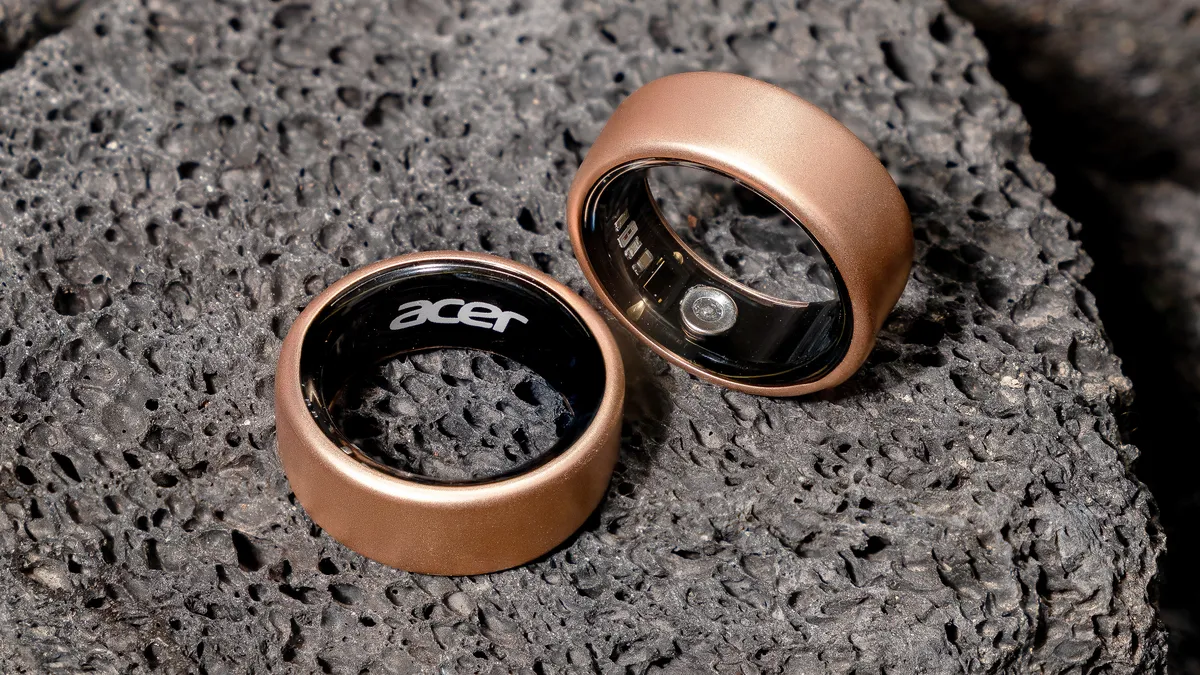
The Acer FreeSense Ring was officially unveiled at Computex 2025 in Taipei, generating significant buzz in the tech community. Positioned as a subscription-free alternative to the popular Oura Ring 4—often regarded as the best smart ring on the market—the FreeSense promises all-day biometric tracking along with AI-driven wellness insights. However, with numerous smart rings flooding the market, what exactly sets Acer's first venture into finger-based wearables apart? Let’s delve deeper.
Currently, Acer has not disclosed specific details regarding the price or availability of the FreeSense Ring. As soon as more information becomes available, we will update this article. What we can confirm, however, is that the FreeSense will be entirely subscription-free, which is a significant advantage for users looking to avoid ongoing costs associated with wearable technology.
The Acer FreeSense Ring will be available in seven sizes, ranging from size 7 to 13. While this selection is more limited compared to the Oura Ring 4, which offers sizes from 4 to 15, and the Samsung Galaxy Ring, available in sizes 5 to 15, it does provide a better range than the Amazfit Helio Ring, which only comes in sizes 8, 10, and 12. This variability in sizing ensures that more users can find a comfortable fit.
Constructed from a durable titanium alloy, the Acer FreeSense Ring features a PVD coating that enhances its durability. Weighing between 2 and 3 grams, it is among the lighter options in the smart ring category. Comparable devices that fall within this weight range include the Samsung Galaxy Ring, Ultrahuman Ring Air, and RingConn Gen 2. The interior of the FreeSense Ring appears to be made from epoxy, a common choice for smart rings. Notably, the sensors seem to protrude slightly from the interior, which may affect comfort compared to rings with flush sensors, like the Oura Ring 4.
In terms of water resistance, the FreeSense Ring is rated for up to 50 meters, which is less than the 100 meters offered by competitors like the Oura Ring and Galaxy Ring. Nevertheless, this level of water resistance should suffice for everyday activities, making it splash and showerproof. However, users might want to avoid diving while wearing it.
Additionally, the FreeSense is IP68-rated, offering protection against dirt, dust, and grime, ensuring the ring’s functionality remains intact in various environments. Upon launch, consumers can choose from two distinct styles: a glossy black finish and a matte rose gold option, catering to different aesthetic preferences.
The Acer FreeSense Ring is designed to track several vital health metrics including heart rate, heart rate variability (HRV), and blood oxygen levels. It also measures sleep quality, though specific details about how this is achieved remain somewhat unclear. It is expected to offer some form of sleep stage analysis along with insights into sleep duration. This holistic data will be processed through a companion mobile app, although compatibility with various phone operating systems has yet to be confirmed.
The insights and recommendations provided by the app will be tailored to individual users, potentially enhancing the overall wellness experience. The effectiveness of these AI-backed insights remains to be seen, as the quality of wellness tips can vary widely.
Without firsthand experience with the Acer FreeSense Ring or its companion app, it’s challenging to assess whether it will secure a spot in our best smart ring buying guide or if it’s merely another example of a brand testing the waters in a competitive market. However, the FreeSense Ring’s lightweight design and subscription-free model are promising features. While the concept of 24/7 wellness monitoring is appealing, the true value will depend on the quality and usability of the custom-tailored insights it offers.
As we await more information, our team at Computex 2025 is actively seeking opportunities to experience the Acer FreeSense Ring in real life, along with the newly announced Acer AI Transbuds. Stay tuned for further updates and insights!